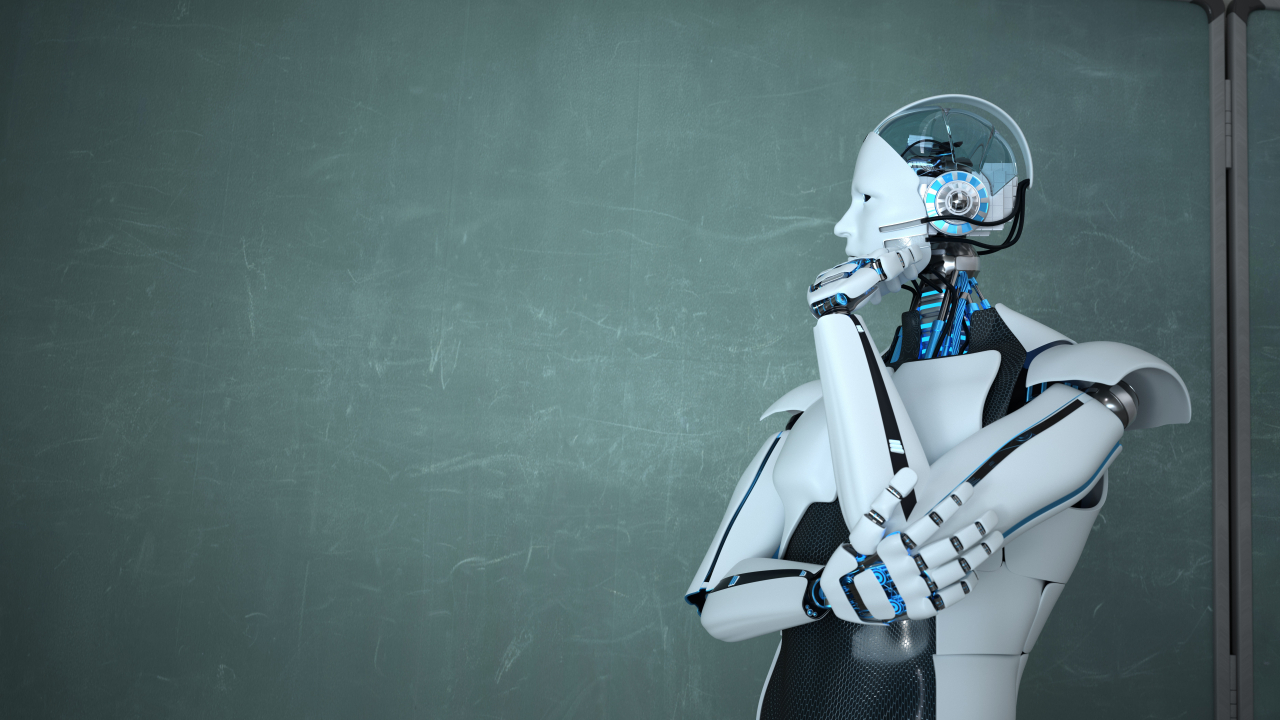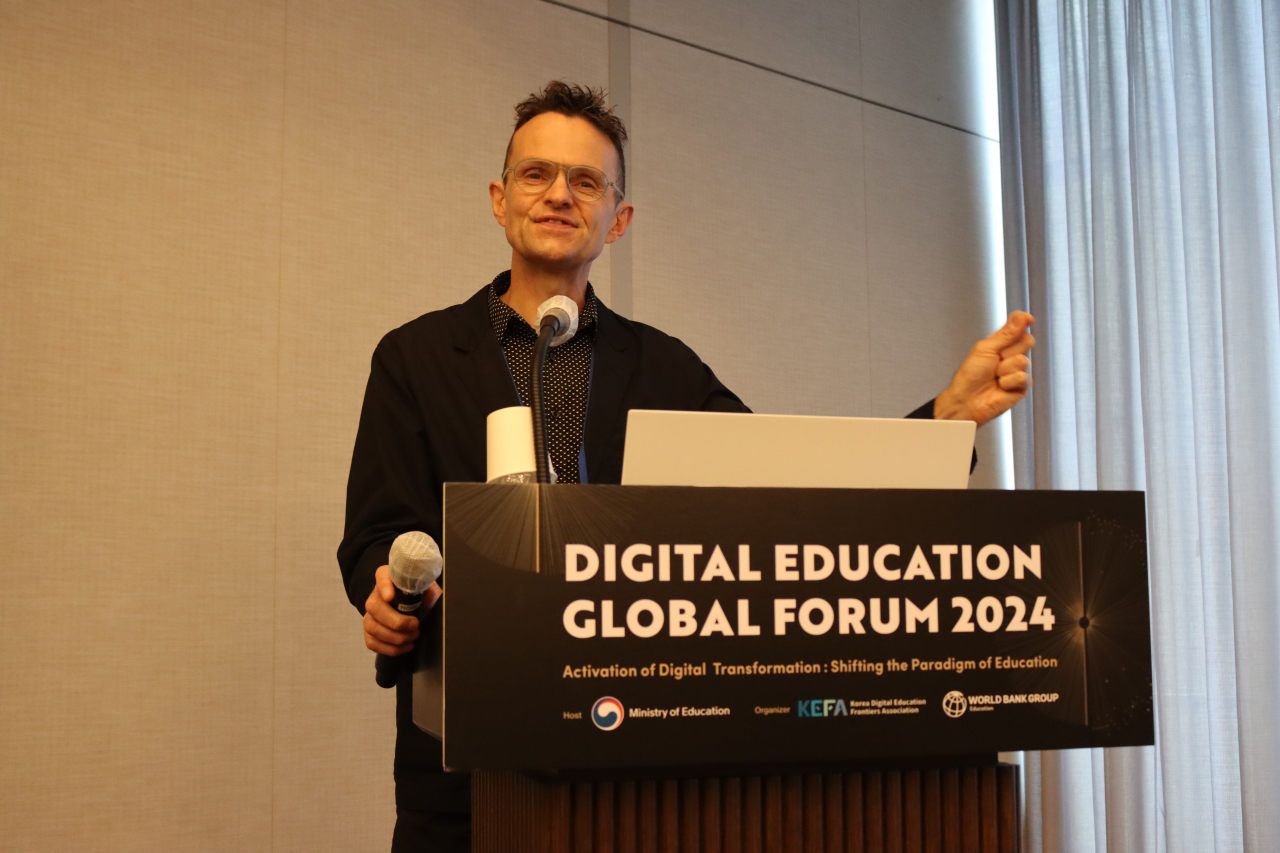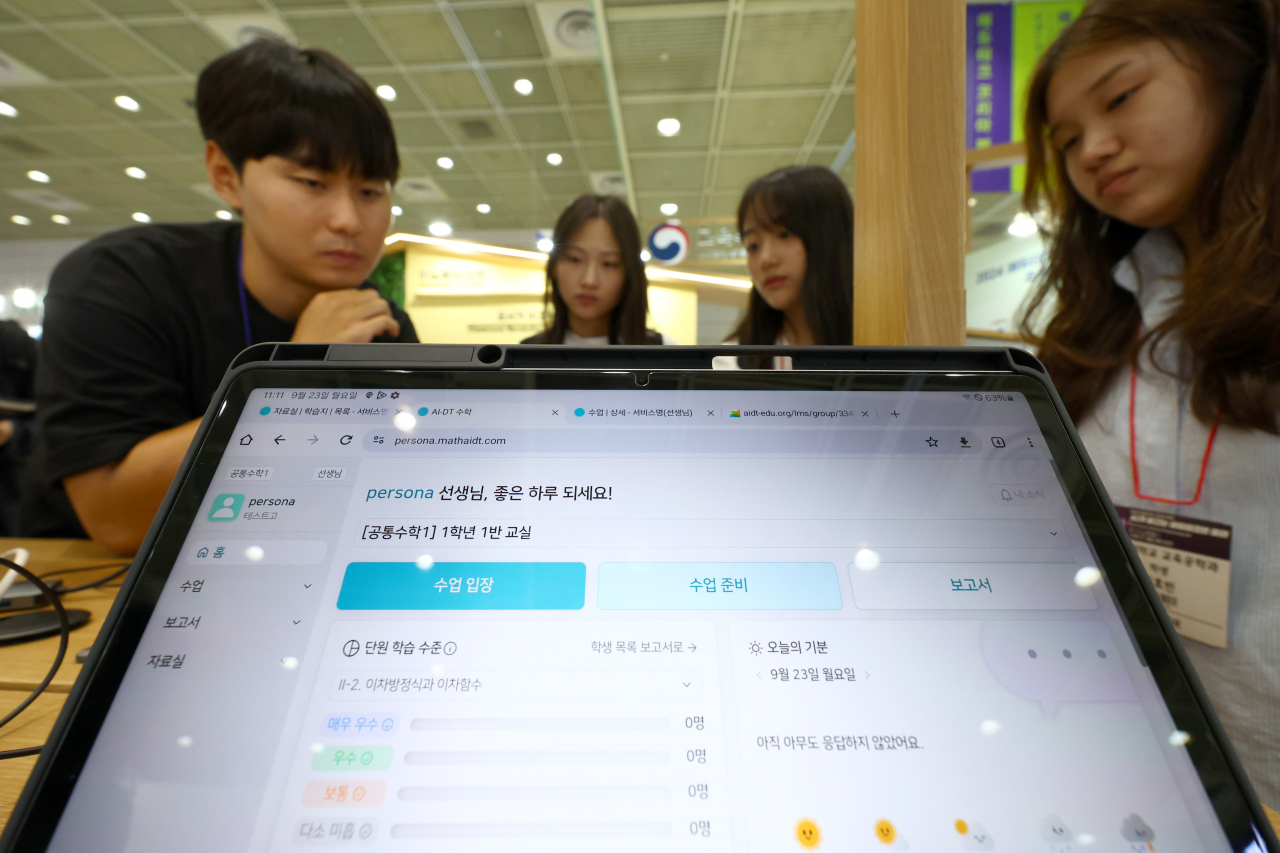 |
(123rf) |
In a move toward digital education, South Korea is set to introduce artificial intelligence-powered textbooks into its schools starting in March next year.
This initiative, which will begin with third and fourth graders in elementary schools and first-year students in middle and high schools, has sparked mixed reactions. Some view it as a true "education transformation," or even a "revolution," others simply as a new tool.
Neil Selwyn, a professor at Monash University in Melbourne and a researcher on the intersection of digital technology and education, warns the excitement around AI textbooks might be a part of a larger "hype bubble" that could eventually burst.
It could leave behind unsolved challenges, he said in an interview with The Korea Herald in Seoul last week.
South Korea's project is ambitious. It involves a $70 million investment in digital infrastructure and AI textbooks, in part with an initiative dubbed the "classroom revolution," which in whole was allocated over $276 million in the budget for school digitization.
The government’s goals are clear: Create a more personalized learning experience, collect data to improve educational outcomes and establish South Korea as a global leader in AI education.
AI in education isn’t new, with tools like chatbots and tutoring systems already in use, Selwyn noted. While South Korea's vision is ambitious, he questioned whether it marks a true revolution or just updates the tools for traditional learning.
Despite the excitement, Selwyn warned against overhyping the role of AI in schools.
“We’re at the top of the hype cycle,” he said. He suggests schools are unlikely to be transformed by AI, but remain much the same. "Students will still come into a school, sit behind a desk, and have a 50-minute lesson about maths or English. The only difference is they’ll be sat in front of a computer. ... It’s surface-level digitization."
The author of "Should Robots Replace Teachers?" said what schools need is a better environment, not a revolution.
"There’s nothing wrong with keeping schools as they are," he said. "They just need to be better places, more inclusive, and less stressful for both students and teachers. If technology can help achieve that, then it’s doing its job."
The AI boom brings realistic challenges, he emphasized. Ensuring sufficient equipment and stable networks in schools is one aspect, but the inequality AI can perpetuate in education is another.
If not designed carefully, AI may worsen existing inequalities, as technologies often reflect societal divisions. For instance, AI systems trained on biased historical data may favor privileged students, such as those from elite groups, while disadvantaging marginalized students.
Selwyn noted that AI tools for grading or admissions can carry biases, leading to discriminatory outcomes. He cited findings showing that AI systems detecting cheating are twice as likely to wrongly accuse Black students compared to white students in the US.
 |
Neil Selwyn, education and technology professor at Monash University, speaks at the Digital Education Global Forum held at Coex in Gangnam, southern Seoul on Sept. 24, where educational officials from 17 countries gathered to discuss challenges and strategies in digital transformation. (Korea Digital Education Frontiers Association) |
Data-driven decisions
While Selwyn remains cautious about AI textbooks as a transformative tool for learners and educators, he does acknowledge the potential benefits AI could offer in the background, particularly in how education systems are managed.
He highlighted the importance of AI in "data-driven decision-making" at the administrative level. AI could be instrumental in helping schools and governments make more informed policy decisions by analyzing vast amounts of educational data. For instance, AI could help identify trends, such as which times of the day students are most engaged or which subjects may require more resources.
"It's the AI that's in the background that helps school administrations or municipalities or governments make decisions and organize things. That type of AI is going to be really, really important because it will be taking the role of how our schools are governed and managed and how budgets are thought about."
However, Selwyn also warned of the dangers inherent in relying too heavily on data. Emotional and social aspects of learning, such as a student’s feelings, struggles or personal challenges, are not easily quantifiable by an algorithm, he added. This limitation underscores the necessity of maintaining human interaction in education -- something that AI, no matter how advanced, cannot replace.
What’s left after bubble bursts?
The current excitement around AI in education could be just another tech bubble, similar to past trends like the metaverse or massive open online courses, which failed to live up to their transformative promises, he claimed.
For South Korea, which aims to be the first country to implement AI textbooks at a national level, the stakes are high as the world watches this experiment unfold.
"But what I think what people are really excited about is if Korea can crack this, you can market this to the world. Right now, I don't think you can. The first-mover advantage, it's a bold thing to do and people will look at it very, very carefully," he noted.
Selwyn stressed the importance of thinking beyond the bubble.
"If you do something that doesn’t work now, you’ve messed up a whole generation’s life," he said, highlighting the risks of jumping on the AI bandwagon without fully considering the long-term consequences.
Another major concern with AI-driven education is its environmental impact. Large data centers powering AI consume vast amounts of energy and water, raising sustainability questions amid climate change, Selwyn noted. While AI could enhance learning, it risks contributing to environmental harm.
He also highlighted the influence of private firms in educational technology, cautioning that profit-driven companies may shape tools, content and teaching approaches that are not aligned with public education goals.
The government should play a stronger role in balancing public and private sector involvement to prevent private firms from dominating the educational agenda, he argued, adding that the Korean government’s efforts to make edtech a public-private collaboration are a positive step.
 |
Participants try out a prototype of an artificial intelligence digital textbook at the 2024 Edutech Korea Fair at Coex in Gangnam, southern Seoul, Sept. 23. (Newsis) |
Persuasion needed
Hurdles remain for the government to persuade parents as well. In a petition posted on the National Assembly’s online platform in May, one requested that the AI digital textbook implementation plan be shelved, citing numerous negative effects of smart devices and calling for more research to ensure the change benefits students not just academically, but in terms of their overall development.
The petition was formally submitted to the parliament’s education committee on June 26 after garnering public support from 56,505 people within a month.
Teachers have also voiced concerns as they have yet to see the actual digital textbooks that are to be put into practice within just six months. According to a recent survey conducted by the Seoul Teachers' Union of 1,794 teachers who attended the AI textbook training session, 94 percent of respondents disagreed that on the necessity to introduce AI textbooks.
Amid growing heed, a bill has been proposed for the AI digital textbooks to be utilized as "educational materials" rather than "textbooks." While textbooks are mandatory for schools to use, schools can decide at their discretion whether or not to utilize educational materials.
Rep. Ko Min-jung introduced a bill to amend the Elementary and Secondary Education Act to upgrade the definition and scope of textbooks from a presidential decree to a law, and to define “learning support software using intelligent information technology (AI digital textbooks)” as “educational materials” that can be used by school principals after deliberation by the school management committee, rather than as textbooks.
"Despite the concerns raised over AI digital textbooks, such as declining student literacy, addiction to smart devices and possible privacy violations, the Ministry of Education is moving ahead with the project without public discussion," she said.
“AI textbooks that have not been tested for effectiveness should not be used in schools immediately,” said Rep. Ko, emphasizing that the amendment should be passed in the current session of the National Assembly as a minimum safeguard to prevent the chaos and aftermath of introducing AI textbooks into schools next year without proper preparation.
In response, the Education Ministry reiterated that the freedom of teachers to use whatever class materials, whether it is a physical paper book or a digital textbook, is the guideline. However, the implementation of digital textbooks at the national level is to ensure equity and that there are no gaps in education for students, an official explained to The Korea Herald asking about the ministry's opinion on the proposed bill.
On the possibility of AI textbooks exacerbating inequality, Selwyn said without intentional design for underserved students AI is likely to benefit the already advantaged, widening the education gap.
"Every technology reproduces existing inequalities and sometimes adds new ones," he said.







